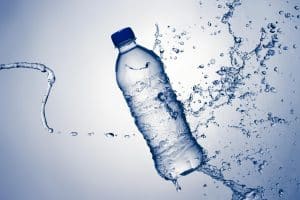How To Stored Bottled Water?
Bottled water is an important part of your preparedness kit and is a good alternative to tap water, particularly in an emergency. It is easy to store and can be replenished if needed. However, it is important to store bottled water correctly so that it remains fresh and safe for drinking.
(Looking for the best house water filtration systems? Contact us today!)

How to Store Bottled Water?
The best way to store bottled water is to keep it in a cool place, away from direct sunlight and other sources of heat. This helps ensure that the water remains free of algae and other harmful organisms.
If you have a large supply of bottled water, it is important to rotate the bottles or jugs regularly so that the water is not stagnant. If you are storing the water in glass jars, make sure they are airtight and that the lid is securely screwed on.
It is also important to avoid storing bottled water in plastic containers. Many of these bottles leach chemicals into the water, including BPA and other potentially dangerous substances.
A great option is to buy large bottles of water in a case that you can stack together several high and easily transport. You can also use reusable glass or plastic containers for this purpose.
Another good option is to fill empty soda, water, or Gatorade bottles with distilled or filtered water from your local tap. This is a cheaper method and can be used to fill your entire family’s water bottles, but it is essential to thoroughly clean the bottles before using them for this purpose.
If you have an extensive stock of bottled water, it is a good idea to label each container with the date you stored it so that there is no question about whether the water has reached its expiration date. This is especially important if you are storing the water for longer than 6 months after its bottling date.
To help maintain the freshness and flavor of bottled water, it is best to store it in a cool, dark place where it will not be exposed to temperature changes and other contaminants. If the storage area is prone to frequent fluctuations in temperature, such as in the garage or a basement, it may be necessary to add ice cubes or freeze the water.
You can also purchase a water-sanitizer solution that can be poured into empty containers to sanitize them before storing them for long periods of time. This is a better option than using bleach as it will not corrode metal containers.
How to Store Bottled Water in Your Home?
The easiest way to store bottled water in your home is to place the bottles or jugs in a cool, dry place. This is recommended by the International Bottled Water Association (IBWA), as this helps prevent the development of algae and other undesirable organisms that can grow in contaminated water.
For long-term storage, purchase thick plastic bottles instead of milk carton-type jugs that are often sold at stores. These are not recommended for long-term storage because they will leak over time and can be difficult to refill, causing damage to the contents of the bottle.

